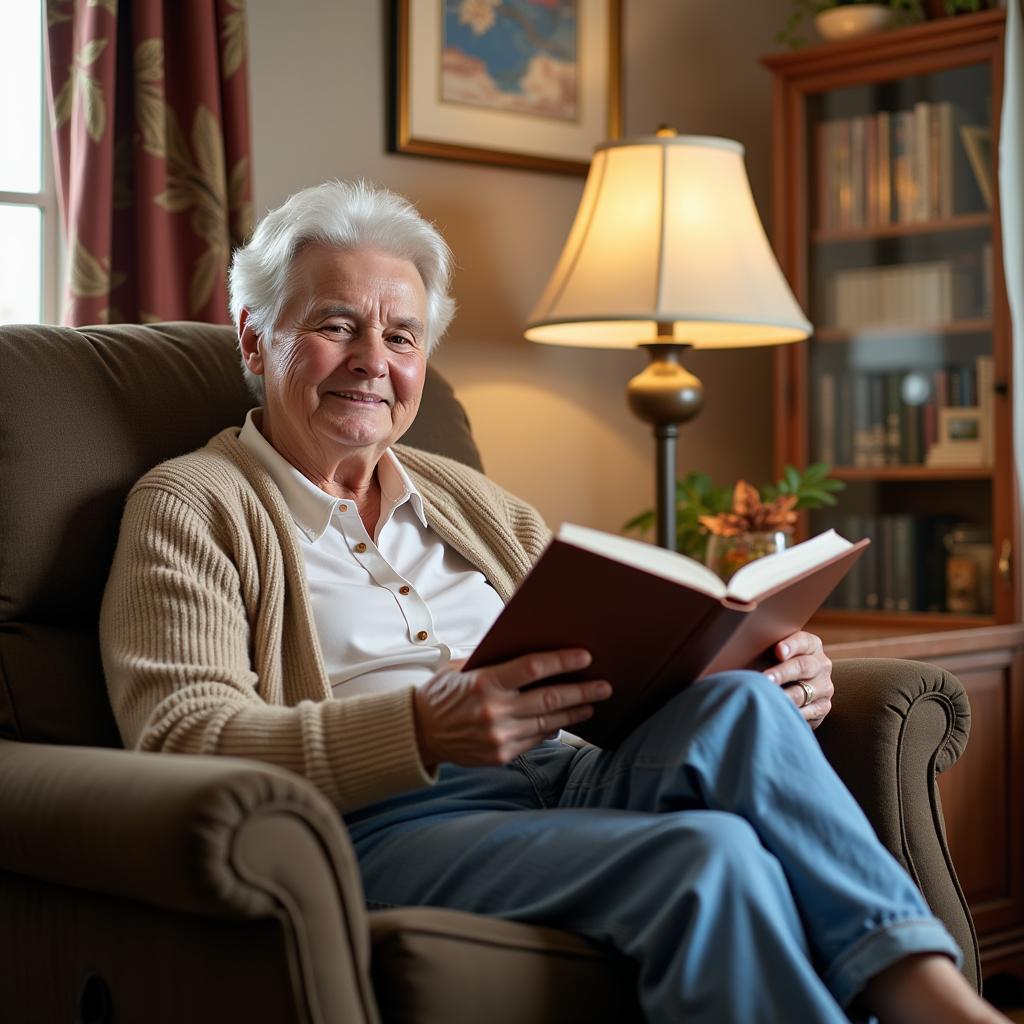Discharging elderly patients from the hospital requires careful planning and coordination to ensure a smooth and safe transition back home. This guide offers valuable insights into the process, emphasizing best practices for a positive experience.
Preparing for Discharge: Key Considerations
Planning for discharge should begin as soon as your loved one is admitted. Early preparation can significantly reduce stress and ensure a successful transition. This involves a collaborative approach between the medical team, the patient, and the family.
- Medical Assessment: A thorough medical evaluation is crucial to determine the patient’s current health status, identify any potential risks, and establish appropriate care needs.
- Medication Management: Understanding the medication regimen is essential. This includes knowing the correct dosages, potential side effects, and any interactions with other medications.
- Home Safety Evaluation: Assessing the home environment for potential hazards is vital. This might involve modifications like installing grab bars, removing tripping hazards, and ensuring adequate lighting.
Facilitating a Smooth Transition: Support and Resources
Navigating the discharge process can feel overwhelming. Fortunately, there are numerous resources available to provide support and guidance.
- Social Workers: Hospital social workers play a vital role in connecting patients and families with essential services, such as home healthcare, physical therapy, and transportation assistance.
- Discharge Planners: These professionals work closely with the medical team to develop a personalized discharge plan, addressing individual needs and ensuring a seamless transition.
- Community Resources: Local organizations and agencies can offer valuable support, including meal delivery services, senior centers, and support groups.
What to Expect After Discharge: Ongoing Care
Even after returning home, ongoing care and monitoring are crucial for maintaining health and well-being.
- Follow-up Appointments: Regular check-ups with the primary care physician are essential to monitor progress and address any concerns.
- Home Healthcare Services: Depending on the patient’s needs, home healthcare services can provide assistance with medication management, wound care, and other medical needs.
- Physical and Occupational Therapy: These therapies can help improve mobility, strength, and independence.
How can I help my elderly parent adjust after discharge?
Create a comfortable and familiar environment, establish routines, and encourage social interaction. Patience and understanding are key during this adjustment period.
What are the signs of complications after discharge?
Be vigilant for changes in behavior, appetite, or sleep patterns. Any signs of infection, such as fever or increased pain, should be reported to the doctor immediately.
When should I call the doctor after my loved one is discharged?
Contact the doctor if you notice any significant changes in their condition, experience difficulty managing medications, or have any concerns about their recovery.
Ensuring a Successful Discharge: Collaborative Effort
Discharging elderly patients from the hospital is a collaborative effort. By working together with the medical team, utilizing available resources, and focusing on ongoing care, we can ensure a smooth, safe, and positive transition back home.
 Elderly Patient at Home After Discharge
Elderly Patient at Home After Discharge
FAQ
- What is the typical hospital stay for an elderly patient? The length of stay varies depending on the individual’s condition and medical needs.
- How can I prepare my home for an elderly parent’s return from the hospital? Make necessary modifications to ensure safety and accessibility, such as installing grab bars and removing tripping hazards.
- What are the common challenges faced by elderly patients after discharge? Challenges can include medication management, mobility issues, and adjusting to changes in routine.
- What resources are available to support elderly patients after they leave the hospital? Resources include home healthcare, physical therapy, social workers, and community support organizations.
- How can I prevent hospital readmission for my elderly parent? Follow the discharge plan carefully, attend all follow-up appointments, and monitor for any changes in their condition.
- What are the signs that an elderly patient is struggling after discharge? Look for changes in behavior, appetite, sleep patterns, or any signs of infection.
- Who should I contact if I have concerns about my elderly parent’s recovery after discharge? Contact their primary care physician or the hospital discharge planner.
Need more assistance? Contact us: Phone: 02437655121, Email: [email protected] Or visit us: 298 Cau Dien St., Minh Khai, Bac Tu Liem, Hanoi, Vietnam. We have a 24/7 customer service team.